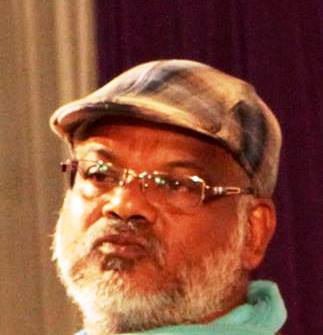How come China, with its pathetic record of human rights in Tibet, Xinjiang, Tiananmen Square, now in Hong Kong and many other places is the biggest Asian trade partner of Sweden amounting to 58 billion SEK trade, nearly 6 billion USD.
 Dr. D.K. Giri I INFA Service
Dr. D.K. Giri I INFA Service

In the wake of a high level delegation visit from Sweden accompanying the King Carl XVI Gustaf and Queen Silvia, it was said that the ‘the ties between India and Sweden have been on an upward trajectory in the last few years’. My remit here is to see if these assertions reflect customary diplomatic niceties; or if they correspond to the realities in bilateralism. A related hypothesis to examine is whether India could be the biggest Asian trade and development partner of Sweden.

The Swedish delegation consisted of the Minister of Foreign Affairs Ann Linde, Minister for Business, Industry and Innovation. Ibrahim Baylan, the Vice-Minister of Health and Social Affairs, (equivalent to a Secretary, Government of India), Maja Fjaestad, and score of high level business Houses like Ikea, Ericsson, and Tetrapak. Obviously, Sweden would be exploring trade and investment opportunities in India.
About 170 Swedish companies, either in joint ventures or in wholly-owned subsidiaries, are operating in India.

The volume of Swedish-India bilateral trade is around 3.37 billion USD; whereas Sweden’s trade with China stand at around 5.8 billion USD. This is something that should worry New Delhi, and Stockholm should rethink its trade policy in keeping with its much-vaunted stance on human rights and democratic politics. This should be the crux of dialogue between Stockholm and New Delhi.

Taking a critical look at both countries’ political culture, one could explore the first patch of the common ground. Both countries have a strong record on democracy, although Sweden is a developed country and India is still under developing countries categories. Interestingly, not to the knowledge of many in both countries, Sweden and India have similar political practices.
The biggest political party in Sweden, the Social Democratic Party (SAP)  now in government, does not have a party leadership election. Similar is the case in India, In fact, the political parties are pilloried by observers for not conducting the intra-party election. Remember, elections are not the only criteria for democracy. Second, Swedish politics is largely based on consensus, which is also the intrinsic fundamental Indian value.
now in government, does not have a party leadership election. Similar is the case in India, In fact, the political parties are pilloried by observers for not conducting the intra-party election. Remember, elections are not the only criteria for democracy. Second, Swedish politics is largely based on consensus, which is also the intrinsic fundamental Indian value.

The oldest indigenous democratic institution in India, the ‘Panchayat’, (rule by five) was based on consensus. Indian culture essentially represents synthesis despite its huge cultural diversities. Alas, after the adversarial politics injected as British colonial legacy, India tears itself apart politically. Notably, in the Swedish Parliament, the members are seated alphabetically and region-wise not as treasury and opposition. This suits India’s culture too.
Third, Sweden is strongly and consciously moving towards multiculturalism, which is inherent in India. I recall a multi-party delegation from Sweden at the behest of Ann Linde, then the International Secretary of SAP, now Foreign Minister, visited India to study the multicultural democracy in India. This is an area where New Delhi could extend a hand to Stockholm, from its experience of running a multicultural politics.
The Diplomatic ties between India and Sweden go back to 1949. Both countries converge on many occasions and issues in international fora, Sweden supports India’s membership of an expanded UNSC, membership of Nuclear Suppliers Group, and have supported India joining the Missile Technology Control Regime. There are regular high-level political visits from both countries. The Social Democratic Swedish Prime Minister Olof Palme is quite popular in India. The Noble Peace Prize conferred by Sweden and Norway is the highest civilian award in the world. Many Indians have been the recipients, and all Indians value this honour coming through Sweden to the entire world. The fragrance of fame and recognition of deserving individuals permeates the entire universe of knowledge, creativity and innovation.
Sweden has a strong track record of defending democratic values, human rights, and feminist perspectives. The current Foreign Minister reflects them all in her political career, in all the positions she has held. One of the first things she did after assuming charge of foreign affairs is to underline the feminist foreign policy of her country. Her remarks on Kashmir also reflect such concerns. She was urging a dialogue between India and Pakistan, which is the spirit of Shimla Agreement, asking for lifting of the remaining restrictions in Kashmir as Government of India is already doing, and expecting a long-term solution to the issue, which all Indians seek. There was nothing material in her remarks that contrast India’s positions.
Let us understand that a Swedish politician, from a Social Democratic Party, once led by legendary Olof Palme, will speak the language of democracy, gender equity, human rights, welfarism etc. This should sound good to us as they are enshrined in our Constitution and we largely try to follow them.
Having appreciated the Swedish position and politics on issues, New Delhi should turn these principles back to them in their trade and investment policies. All European countries stand guilty of this mismatch between their political values and trade priorities. But Sweden is less so; and they would listen more seriously to the echoes of their own international statements.

What it means precisely is that, how come China, with its pathetic record of human rights in Tibet, Xinjiang, Tiananmen Square, now in Hong Kong and many other places is the biggest Asian trade partner of Sweden amounting to 58 billion SEK trade, nearly 6 billion USD! What steps Sweden is proposing to enhance trade with India, which has maintained its democracy against heavy internal as well as external odds? Pakistan is under international watch for terrorism aided and abated by China. Has Sweden taken a clear position against Chin-Pak terror axis?
Sweden known in the comity of countries for speaking in favour of human rights, peace and harmony across the world should not go on doing brisk business with China. If not, shall we conclude then that, in keeping with Marxist axiom, it is the money that matters at the end of the day? Not really! Sweden is by far the best example of democracy and welfarism. Indians expect Sweden as we struggle to preserve them in this part of the world to stand by us, not those structurally trampling human rights.





